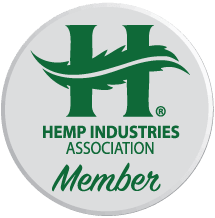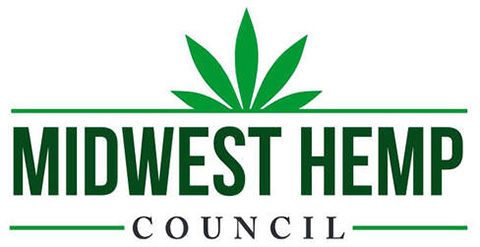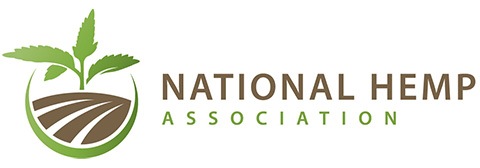
One of the factors leading to the current oversupply of CBD hemp biomass and hemp-derived CBD products that developed over the past two years is that demand for the non-intoxicating cannabinoid has not exhibited the growth that some predicted. This led numerous market research firms focused on the retail side of the market to cut their projections for CBD sales growth last year. Meanwhile, the rise of delta-8 THC and other intoxicating cannabinoids manufactured from hemp-derived CBD suggests that consumers are willing to spend money on hemp products that produce a more discernible effect.
In what follows, Hemp Benchmarks analyzes financial results released by publicly traded CBD companies and market reporting from other outlets in order to gauge how CBD demand and sales have fared in 2021 compared to prior years. We also contrast what appears to be plateauing CBD sales to financial results reported by a publicly traded company that deals in delta-8 THC and similar products.
Projected CBD Demand Growth Has Not Yet Materialized
Lack of growth in demand for CBD has been attributed frequently to “regulatory uncertainty,” a common industry euphemism for the U.S. Food and Drug Administration to this point declining to allow CBD to be marketed as a dietary supplement or added to foods. Many industry observers also believe that the COVID-19 pandemic affected CBD sales negatively beginning in the second quarter of 2020.
While the coronavirus has continued to impact the U.S. – and the world – this year, available information indicates that CBD product sales have not bounced back in the same way as many other areas of consumer spending. A recent U.S. CBD Market Industry Update published by the Brightfield Group, a CBD and cannabis market research firm, estimates that retail sales of CBD products will reach $4.7 billion in 2021, up just 2.5% from $4.6 billion in 2020.
Quarterly financial reports from some publicly traded CBD companies affirm stagnant sales. Charlotte’s Web, the Colorado-based company that the Brightfield Group report pegs as commanding the largest market share of any U.S. CBD firm, reported $23.7 million in gross revenue for Q3 2021, down from $24.2 million the prior quarter and a decline of 6% year-over-year. However, the company stated that the proliferation of lower-priced products was largely responsible for declining revenue. “As the category evolved from early adopters of higher priced CBD oil tinctures to lower priced gummies, topicals and pet products, we adjusted our portfolio offer and expanded our presence across new channels. This increased our unit sales and market share across every channel, but reduced total net revenue versus Q3-2020,” said Deanie Elsner, CEO of Charlotte’s Web, in a press release.
Overall, Charlotte’s Web 2021 sales have been steady, but down compared to the second half of 2020. After opening last year with quarterly revenues of $21.5 million and $21.7 million in Q1 and Q2 2020, respectively, the company saw sales rise to $25.2 million in Q3 and $26.9 million in Q4 last year. The first three quarters of 2021 have seen revenues of $23.4 million, $24.2 million, and $23.7 million, sequentially.
Two other publicly traded CBD companies – cbdMD and CV Sciences – have reported similar sales trends. In the second half of 2020, cbdMD sales climbed from $12.25 million in Q3 to $13.13 million in Q4. They then fell to $12.46 million in Q1 2021 and declined further to $11.35 million in Q2 2021. cbdMD has not reported Q3 2021 financial results as of this writing.
CV Sciences also saw higher sales in the second half of 2020 relative to this year. Reported revenues for Q3 and Q4 2020 were $5.56 million and $5.2 million, respectively. 2021 kicked off with $4.84 million in quarterly sales in Q1, $5.1 million in Q2, and the company recently reported $5.11 million in revenues for Q3. A press release on the most recent financial results noted that Q3’s sales were impacted by increased competition and an “uncertain regulatory environment for CBD.”
Rare Financial Filings Indicate Hemp-Derived THC Sales Are Booming
Hemp Benchmarks has covered the rise of delta-8 THC since late summer 2020, and we recently expanded our price reporting to include delta-10 THC distillate prices. Definitive sales figures for various forms of THC manufactured from hemp-derived CBD – which also includes compounds such as THC-O, THC-V, THC-P, and even delta-9 THC – are elusive, as the products are of questionable legality and are sold largely in untracked channels. Anecdotal accounts from market participants documented for over the past year tell of rapidly expanding sales, with some hemp-cannabinoid companies stating that delta-8 THC and similar products now account for the majority, or even nearly the entirety, of their business.
This month, Hemp Benchmarks was able to locate financial filings and related documents of a company that deals in delta-8 THC and other intoxicating cannabinoids manufactured from hemp-derived CBD. The company, LFTD Partners Inc., is in the process of merging with another business, Savage Enterprises, which likewise manufactures and sells several forms of hemp-derived THC and other cannabinoids. While limited to two particular companies, the sales data contained in the documents provides an illustration of how much and how quickly the hemp-derived THC market is expanding.
In August, LFTD filed a Form S1/A with the U.S. Securities and Exchange Commission (SEC). In the form, LFTD describes itself as follows: “Our business is primarily engaged in the identification, structuring and seeking to execute on acquisitions of all or a portion of one or more operating businesses involving the manufacture, sale and distribution of products infused with hemp-derived cannabinoids (including but not limited to delta-8-THC, delta-9-THC, delta-10-THC, CBD, CBG and CBN).”
The description also notes that the company sells products containing synthetic nicotine, including flavored vape pens, but further reading indicates that the hemp-derived cannabinoid side of the business has rapidly eclipsed the nicotine side. During Q2 2020, the SEC filing notes, LFTD saw over $1.26 million in net sales; “49% of sales were generated from the sale of e-liquid and disposable e-cigarettes, 47% of sales were generated from the sale of hand sanitizer, and 4% of sales were generated from the sale of hemp and hemp-derived products,” the filing elaborates.
Jumping ahead to Q2 2021, LFTD reported over $6.69 million in net sales, a more than five-fold increase year-over-year. Ballooning sales were driven almost entirely by hemp-derived cannabinoid products. In the SEC filing, the company details, “95% of sales [in Q2 2021] were generated from the sale of hemp and hemp-derived products, and 5% of sales were generated from the sale of e-liquid and disposable e-cigarettes.”
LFTD recently reported revenue grew further in Q3 2021, to $8.8 million. An accompanying 10Q form filed by LFTD with the SEC reveals that hemp-derived products accounted for nearly all of the company’s revenues in the most recent quarter: “During the three months ended September 30, 2021, approximately 99% and 1% of sales were generated from the sale of hemp and hemp-derived products and e-liquid and disposable e-cigarettes, respectively.” In its press release, LFTD highlights its Urb Finest Flowers brand as a driver of growth. An examination of the most popular products sold under the brand on LFTD’s website shows that they are made up mainly of hemp-derived delta-8 THC in various forms. Hemp-derived delta-10 THC, delta-9 THC, THC-O, and THC-V products are also featured.
The press release cited above notes LFTD’s pending acquisition of Savage Enterprises, as well as revenues of over $20 million generated by the latter company in Q3 2021. An investor presentation filed by LFTD with the SEC in October provides more details on Savage’s sales. The document shows that Savage’s (unaudited) sales almost doubled from Q3 2020 to Q1 2021, from over $2.77 million to more than $5.26 million. Revenues then essentially doubled in each subsequent quarter, to over $10 million in Q2 2021 and to more than $20 million in the most recently concluded period.
Savage confirmed those financials in its own press release touting Q3 2021 earnings. Savage’s press release also notes that this year’s meteoric quarterly revenue increases were “primarily driven by the growth of its award-winning hemp products brand Delta Extrax, under which Savage sells hemp-derived delta-8-THC, delta-9-THC, delta-10-THC, THC-P, THC-O, HHC, and other emerging cannabinoid products.”
Again, while only a snapshot of the largely opaque hemp-derived THC industry, the financial documents examined here provide some concrete figures that have frequently been missing from the extensive discussions of the sector. Notably, if accurate, Savage Enterprises’ Q3 2021 sales rival those of Charlotte’s Web, the CBD company with the largest market share in the country. LFTD’s and Savage’s combined Q3 revenues of nearly $30 million are more than 20% higher than those of Charlotte’s Web for the same period, and dwarf the sales of the other publicly-traded CBD companies discussed above.
It must be noted that we cannot state definitively whether the hemp-derived THC sector has grown to eclipse the U.S. CBD market as a whole. Charlotte’s Web is the largest of thousands of companies producing and marketing hemp-CBD products nationwide. It is not known how many companies are currently producing and selling THC and other intoxicating products made from hemp-derived CBD, nor whether LFTD and Savage’s recent financial results are representative of other businesses in the sector. Still, the robust, rapidly rising revenues examined above show how quickly the hemp-derived THC market has expanded in just over a year.
What Does the Future Hold for the Hemp-Derived Cannabinoid Industry?
The Brightfield Group report projects significant growth in CBD sales in 2022, when it expects retail revenues to approach $6 billion, an increase of over 20% from this year’s projected $4.7 billion in sales. In the near term, sales may tick up in the current quarter with the holiday season, but that may be optimistic given the relatively stable, slightly declining sales reported so far this year. Both Charlotte’s Web and CV Sciences noted the passage of California Assembly Bill 45 in their recent earnings reports. The measure formally legalized CBD production and sales in the state, while also allowing the cannabinoid to be added to foods and marketed as a dietary supplement. Whether California’s AB 45 works to significantly boost overall CBD sales remains to be seen.
Also regarding California, LFTD’s filings note, “California may in the future restrict the sale of delta-8 THC products to companies holding marijuana licenses issued by the state,” a regulatory approach that has been taken by several other states already. Accordingly, LFTD’s filling states that it is seeking to also acquire a company that is in the process of gaining a California cannabis business license so that it can continue its activities in the state in the event of a regulatory change.
The Savage press release cited above indicates that some businesses are not dissuaded by the regulatory uncertainty surrounding hemp-derived THC. Indeed, the company concludes its release by stating that additional novel hemp-derived cannabinoid products will be released imminently: “Savage expects to continue expanding its product catalog in the fourth quarter with the release of new products combining unique cannabinoids that have yet to be established in the market.”
Whether the hemp-derived THC boom continues is likely largely dependent on decisions made at the federal level. Currently, it appears that most delta-8 THC and similar products are being sold online direct-to-consumer, as well as by small independent retailers such as vape shops. Those channels would presumably dry up if federal lawmakers or agencies such as the Drug Enforcement Administration decide that delta-8 THC and similar compounds are illegal and crack down on their production and sale.
If delta-8 THC and similar cannabinoids are eventually limited largely to state-legal adult use and medical cannabis systems, whether they can compete with established delta-9 THC products is an open question at this point. The low cost of producing THC from hemp-derived CBD compared to the traditional process of extracting delta-9 THC from cannabis plant material would presumably make the hemp-derived cannabinoids price competitive, but manufacturers have not yet been subject to licensing, testing, and other compliance requirements, which would likely push up product prices, at least initially.


